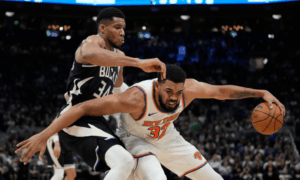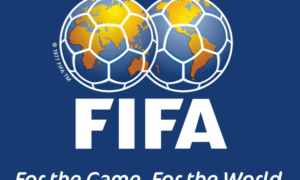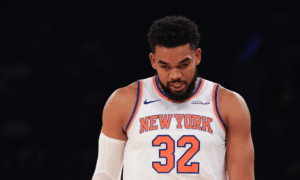Evan Turner Overcomes Legal Challenge in Chinese Shoe Deal Controversy

Evan Turner, who had a career in the NBA from 2010 to 2020, recently won a breach of contract case against his former agent, David Falk. This decision was made by a judge in Delaware last Friday.
The case revolved around whether Turner was obligated to pay Falk a percentage of the proceeds from the sale of stock he received through an endorsement deal with the Chinese shoe brand, Li-Ning. Ultimately, Turner triumphed because Falk had delayed too long in bringing the lawsuit.
The disagreement goes back to 2010, when Turner received the College Basketball Player of the Year award after an impressive run at Ohio State. During that time, he and his mom sat down with Falk, a well-known agent who had represented Michael Jordan. They voiced their concerns about Falk’s refusal to lower his 4% fee for contract negotiations, which was a sticking point for them. They also mentioned his insistence on a hefty 20% marketing fee for endorsement deals, which added to their concerns.
After some discussion, they reached a verbal agreement. Falk agreed to waive the 4% fee and adjusted the marketing fee to 15% for the first $2 million in income. After that, the fee would increase to 20%. However, they did not discuss how the marketing fees would apply to compensation from stock or the specifics of such arrangements.
Turner was selected second overall by the Philadelphia 76ers in the 2010 NBA draft. Throughout his career, he played for several teams, including the Indiana Pacers, Boston Celtics, Portland Trail Blazers, and Atlanta Hawks. Although he never made it to the All-Star level, he established himself as a reliable role player. Eventually, he returned to the Celtics, this time as an assistant coach.
In the early days of his NBA career, Falk, through his agency FAME (Falk Associates Management Enterprises), sought endorsement opportunities for Turner, securing one with Li-Ning. This deal included one million shares of company stock, which vested in 2016, alongside guaranteed cash compensation, royalty payments based on the sales of Turner’s signature shoe, and performance-based bonuses.
Turner paid Falk marketing fees based on the cash Turner received from Li-Ning, but there was no agreement regarding the stock shares. A written agreement was created to formalize their arrangement, which Falk later claimed mirrored agreements he had maintained with numerous other players for years.
After working together for six years, Turner chose to terminate his relationship with Falk. Following this, Falk’s agency notified Turner’s representative via email that they needed to determine when Turner would sell his Li-Ning shares and pay Falk the 20% marketing fee. However, there was no response to this email from Turner or his team, even as the stock was valued at approximately 40 cents per share.
By 2021, the value of Li-Ning’s stock had increased to over $10 per share. Around that time, Turner texted Falk and a vice president at FAME, acknowledging the stock’s rise and indicating that he would send them a gift soon after selling more than 800,000 shares.
In court, Turner argued that the stock was not subject to a commission because it was never the parties’ intention for the marketing fee to apply to stock. He claimed that any uncertainty in the contract should favor his position since Falk had drafted it. Falk contended the opposite, asserting that stock was merely a different form of compensation from the endorsement deal and should be included as marketing income.
Judge Patricia A. Winston found that the stock was indeed commissionable, as the agreement specified that the marketing fee applied to “all marketing income… from all Marketing Contracts.” Since Turner received stock from Li-Ning as payment, it qualified as income.
In the end, the judge decided in favor of Turner mainly because of when Falk filed his claim. The law states that there’s a three-year window for such lawsuits, and Falk didn’t bring his case until 2022.
Turner’s attorneys argued that the statute started when he received the stock, rather than at the time he sold it. They maintained that the income from the stock sale occurred years after he completed the endorsement work for Li-Ning. Falk, on the other hand, believed the timeline began at the cash compensation moment, which for the stock would align with the sale.
Winston sided with Turner, asserting that Falk’s right to a marketing fee should have emerged when the stock vested in 2016, which meant a lawsuit was required by 2019. She pointed out that Turner had paid Falk commissions based on the cash received from Li-Ning when they compensated Turner directly.



























